MOMENTUM Newsletter Winter 2021

LeChelle, a single mom and Metro bus driver, and her son Evan, a st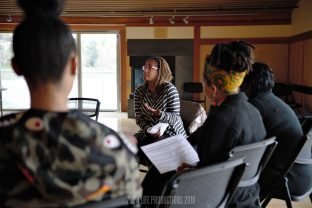 udent at Denny International Middle School, participate in two Seattle CARES programs. LeChelle has seen Evan grow and mature in the past few years through his involvement in The Rising, supported by King County’s Best Starts for Kids. LeChelle is an enthusiastic participant in the community wellness circles, part of Positive Family Connections. We asked LeChelle to share her thoughts on how these programs have impacted her family’s life.
udent at Denny International Middle School, participate in two Seattle CARES programs. LeChelle has seen Evan grow and mature in the past few years through his involvement in The Rising, supported by King County’s Best Starts for Kids. LeChelle is an enthusiastic participant in the community wellness circles, part of Positive Family Connections. We asked LeChelle to share her thoughts on how these programs have impacted her family’s life.
Why did you select The Rising for your son Evan?
I wanted Evan to participate in The Rising because of the demographic it serves. As a single parent, I felt it was necessary for him to be exposed to positive members in our local community who not only looked like him but could empathize with him on issues surrounding our community. These are people who understand the dynamics of the Black family and could offer guidance and insight on how to navigate through systematically anchored stumbling blocks.
After looking through the program’s brochure and speaking with Mrs. Fields, the assistant principal at Denny, I knew this team did this work from the heart and had my son’s best interests in mind. The commitment they made to us, and the journey we have been through together thus far, have been worthwhile.
What were your initial expectations?
I wanted Evan to improve his organizational skills: To recognize when he’s beginning to procrastinate and to develop strategies to stay ahead of the game. At the end of the 7th grade, Evan had to play serious catch-up. He had so many missing assignments, it was unbelievable. I reached out and made the Seattle CARES team aware. Together we developed a plan and provided Evan with an opportunity to learn and understand a major life lesson. Their innovative incentive programs also helped inspire my son.
The deal was he had to read a book entitled “The 7 Habits of Highly Effective Teens.” After reading it, he had to pick three habits, rank them and explain why he made those selections. We worked on the readings together. I helped edit Evan’s rough draft and took him to the public library to type his paper. At the very top of his list was procrastination. Evan remembered how procrastinating affected him earlier that year. He understood the fall-out and then the catch-up process, which was very stressful. We both had takeaways from that book project. Since then, Evan has not had a single issue regarding procrastination. This was a win-win combination of mentorship, parent involvement, and student achievement.
What other impact has The Rising had on Evan?
Evan looks forward to the weekly meetings with the other students and facilitators. He is usually reserved but has told me he feels comfortable in the group. The most impactful outcome has been Evan’s sense of accountability and learning to become more responsible. He is a more confident student because he understands that it is up to him to prioritize. Nobody can do that for him. Evan is very proud of the grades he earns and the effort that he puts into projects. The Rising does an outstanding job of recognizing his strengths. That is very motivating to my son.
Were there issues during the move to virtual learning last spring?
The school closure sent a panic over my household. I didn’t even have a computer for Evan to use, but The Rising had a laptop hand-delivered to Evan weeks before the school district began to distribute theirs. The computer was already set up and ready to go with programs and software installed. Tech support was available, as well. Seattle CARES sent a text and email before class to ensure Evan was on time. Participation was still required and he looked forward to class with the same excitement he did as if it were face-to-face.
Does Seattle CARES impact your well-being, too?
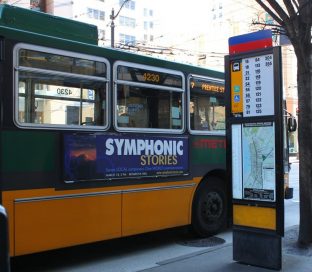
I am a regular participant in the community wellness circle for moms, part of King County’s Positive Family Connections program. This group is essential for my self-care regimen to maintain balance within myself and set boundaries for those I encounter in my daily activities. I love being able to share and not be judged, just supported. I love the fact that we listen to one another and we refuse to offer advice. It is a safe place. I look forward to seeing all those beautiful faces each week; it’s like a breath of fresh air for me. The amount of support and donations I receive for my family through the programs from Seattle CARES has been tremendous.
How are the wellness community circles different?
The facilitators are African American women and that’s important to me. They can sympathize with me and understand my experiences because they may have gone through it, too. We have a cultural connection and it’s nice to be able to vibe on things in a way that wouldn’t be genuine or natural in any other setting. The same applies to Evan and The Rising. It’s a safe place for him to discuss issues that affect him as a young person and as a young Black person. Those are two separate identities he carries. I think it’s such a blessing that my son and I benefit from these programs that are customized for our needs.
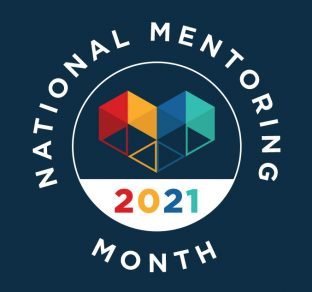 Seattle CARES is proud to celebrate National Mentoring Month. This national recognition of mentoring has been celebrated coast-to-coast for more than 20 years. Like Seattle CARES, this campaign is aimed at expanding quality mentoring opportunities that connect our community’s young people with caring adult mentors.
Seattle CARES is proud to celebrate National Mentoring Month. This national recognition of mentoring has been celebrated coast-to-coast for more than 20 years. Like Seattle CARES, this campaign is aimed at expanding quality mentoring opportunities that connect our community’s young people with caring adult mentors.
Research has shown that mentors play a powerful role in a young person’s life. They provide youth with the tools they need to make responsible decisions, stay focused and engaged in their schoolwork, and reduce or avoid risky behavior such as skipping school or using alcohol or drugs. Yet one in three young people in our country grow up without a mentor.
Mentoring forms a strong and personal connection between two individuals. It lets young people know that they matter, that someone cares. They see first-hand that someone who looks like them and faced the same challenges has created a successful career and home life. Mentors also feel empowered and inspired by the mentor-mentee relationship.
National Mentoring Month is led by MENTOR: The National Mentoring Partnership and the Harvard T.H. Chan School of Public Health at Harvard University. Mentoring Month has been supported by many well-known individuals including poet Maya Angelou, former presidents Barack Obama and Bill Clinton, and musicians Quincy Jones and Usher.
Find our more about mentoring here.
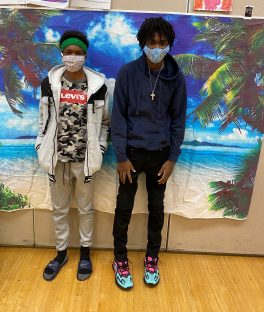 When Andria and her sons left Dallas in 2018, she was desperate but determined. To earn money for her trip, she donated plasma for $54, then packed up her sons and belongings, and hit the road. A good Samaritan at a New Mexico truck stop, sensing the seriousness of her predicament, gave her $280 and bought the family food and gas.
When Andria and her sons left Dallas in 2018, she was desperate but determined. To earn money for her trip, she donated plasma for $54, then packed up her sons and belongings, and hit the road. A good Samaritan at a New Mexico truck stop, sensing the seriousness of her predicament, gave her $280 and bought the family food and gas.
In Seattle, she faced a three-day waiting period for shelter housing. There, a case worker also helped her find a job at a grocery store and enrolled the boys in school. “The shelter was helpful and stressful at the same time,” Andria recalled. “My boys were scared and missed their family and friends. Months went by and we finally learned we were on the list to find permanent housing, but first we had to undergo a housing assessment.”
There was a lot riding on the assessment interview. A Seattle CARES team member attended the meeting with Andria and helped her understand and respond to the questions. It worked: Andria and her family moved into an apartment and started receiving other services as well.
Andria wanted her children to participate in The Rising because she knew the skills they would learn would help her boys understand and prepare for life’s challenges. She was delighted when her sons were assigned a mentor, as well.
“The impact I’ve seen since my children were assigned a mentor is amazing,” Andria said. “Phillip takes time out of his busy schedule to visit my children or takes them to do something special, spending one or two hours with them each week. He’s been a role model, letting them know when they’ve done something inappropriate. I see more determination in my children since Phillip entered their lives.”
Andria’s sons, both enrolled at Meany Middle School, have participated in The Rising since they arrived in Seattle in 2018. Last spring, when The Rising sessions moved online, Through a partnership with InterConnections, Seattle CARES provided the family with a laptop, Internet and WiFi access. Additional support, such as gift cards for groceries and supplies, was provided by 4-C Coalition.
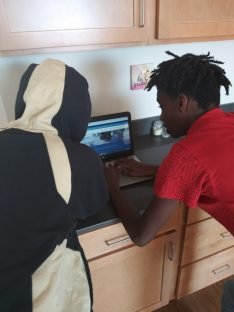
But it was not just the children who benefited. Andria also gets weekly support from the Seattle CARES team. It might be a home visit or simply a telephone call but the regular outreach makes a difference.
“Racism is embedded in our day-to-day lives,” she said, “and these programs offer a place where we can let off steam or ask questions. For my sons, having a mentor makes a big impact. Children need someone outside the home to keep encouraging and guiding them. The Rising program is good for them. Their grades are good because their mentor makes sure they keep up with their school work.”
For now, Andria is grateful that her move to Seattle offered the support she needed and a new start for her family.
Sometimes, just having a safe space to share, vent and heal without being judged is worth its weight in gold. That’s true for LeChelle, a Metro bus driver, who participates in regular community wellness circles, part of Seattle CARES’ Positive Family Connections. This program, funded by King County, was designed to help parents, primarily moms, de-stress, share problems and work on healing themselves.
LeChelle values her participation in the virtual meetings each week. “I look forward to discussing the topic at hand,” she said. “The platform provides a judgment-free space where I c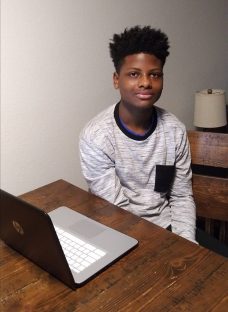 an share my thoughts without being given advice. It feels good just to be heard.”
an share my thoughts without being given advice. It feels good just to be heard.”
LeChelle’s son Evan (photo, right) takes part in another Seattle CARES program, The Rising, aimed at middle school students. Evan has been a Rising scholar at Seattle’s Denny International Middle School for two-and-one-half years and LeChelle has seen the “tremendous impact” the program has had on her son. “It has helped him stay on track and keep his grades up so he can receive all the incentives offered,” she said. “He has become more accountable and more comfortable reaching out and asking for help. I hope to see him gain even more confidence in himself and to mature.”
A recent report showed the value of participating in The Rising. In a study conducted by the Bethune Institute this past school year, researchers found that 92 percent of students in Seattle CARES’ The Rising program had increased self-confidence. Racial identity and racial pride also improved as did social and emotional intelligence. The Rising is supported by King County’s Best Starts for Kids program.
When Seattle CARES transitioned to a virtual format in the spring of 2020 because of the spread of Covid-19, additional support was needed to make sure no families were left behind. Seattle CARES turned to its partners, 4-C Coalition and InterConnections, to help out. “Transitioning to the video conferencing this spring was unexpected but made possible by the technology my family received through the program,” said LeChelle. “All we had to do was turn it on and we were able to connect. The virtual sessions were amazing. They were fun and it was great for my son to see his classmates on a weekly basis. They really kept him engaged!”
LeChelle has had such a good experience with Seattle CARES that she hopes to have a mentor assigned to work one-on-one with her son soon.